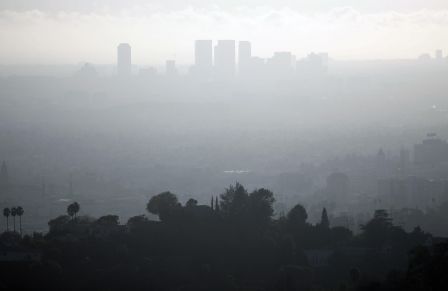Low-income communities in CA are more vulnerable to climate change-related health risks

A study by the California Department of Public Health finds that people in poorer areas of Los Angeles and Fresno Counties are more at risk of ill health effects from climate change than those in wealthier neighborhoods. The report found that in LA, neighborhoods on the coast were the most vulnerable, mostly because of sea-level rise, though it also blamed “poor public transit, wildfire risk, and a large proportion of elderly living alone.” In Fresno, there were similar issues (aside from the obvious fact that sea-level rise won’t directly affect the landlocked county).
Our content partner California Watch reported on the study (PDF) today.
The department examined social and environmental factors ranging from the rising sea level to public transportation access and found that African Americans and Latinos living in these counties are more likely to be exposed to health and safety risks related to poor air quality, heat waves, flooding and wildfires stemming from climate change.
“Clearly, climate change risks are not equal across the state or within individual counties,” according to the report. “Identifying communities at greatest risk is a necessary step in efficiently employing limited resources to protect public health.”
The introduction to the study mentions California’s cap-and-trade program, saying some of the projected $1 billion raised from carbon trading should go to help mitigate effects in vulnerable communities.

